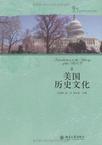美国历史文化
出版时间:2009-9 出版社:北京大学 作者:常俊跃//夏洋//赵永青 页数:216 字数:336000
Tag标签:无
前言
《美国历史文化》是在内容依托教学理念指导下,依托国家哲学社会科学项目“英语专业基础阶段内容依托式教学改革研究”推出的系列英语内容依托教材之一,是大连外国语学院和辽宁省两级教学成果一等奖并获得国家级教学成果二等奖。这套系列教材的推出具有重要的理论意义和重大的现实意义。随着我国英语教育的快速发展,英语专业长期贯彻的“以技能为导向”的课程建设理念及教学理念已经难以满足社会的需要。专家教师们密切关注的现行英语专业教育大、中、小学英语教学脱节,语言、内容教学割裂,单纯语言技能训练过多,专业内容课程不足,学科内容课程系统性差,高低年级内容课程安排失衡及其导致的学生知识面偏窄、知识结构欠缺、思辨能力偏弱、综合素质发展不充分等问题日益凸显。针对上述问题,国家哲学社会科学项目“英语专业基础阶段内容依托式教学改革研究”以内容依托教学(CBI)理论为指导,确定了如下改革思路:(一)更新语言教学理念,改革英语专业教学的课程结构。在不改变专业总体培养目标和教学时限的前提下,对课程结构进行革命性的变革,改变传统单一的语言技能课程模式,实现内容课程——语言课程的融合,扩展学生的知识面,提高学生的语言技能。(二)开发课程自身潜力,同步提高专业知识和语言技能。内容依托课程本身也同时关注内容和语言,把内容教学和语言教学有机结合。以英语为媒介,系统教授专业内容;以专业内容为依托,在使用语言过程中提高语言技能,扩展学生的知识面。(三)改革教学方法手段,全面提高语言技能和综合素质。依靠内容依托教学在方法上的灵活性,通过问题驱动、输出驱动等方法调动学生主动学习,把启发式、任务式、讨论式、结对子、小组活动、课堂展示、多媒体手段等行之有效的活动与学科内容教学有机结合,提高学生的语言技能,激发学生的兴趣,培养学生的自主性和创造性,提升思辨能力和综合素质。本项改革突破了我国英语专业英语教学大纲规定的课程结构,改变了英语专业基础阶段通过开设单纯的听、说、读、写四种语言技能课提高学生语言技能的传统课程建设理念,对英语课程及教学方法进行了创新性的改革。首创了有英语专业基础阶段具有我国特色的内容——语言融合的课程体系;率先开发了适合英语专业基础阶段的内容依托课程;系统开发了英语国家史、地、社会文化、欧洲文化、中国文化、跨文化交际、《圣经》文化教材;以英语为媒介,系统教授专业内容;以内容为依托,全面发展学生的语言技能;扩展学生的知识面,提高学生的综合素质,以崭新的途径实现英语专业教育的总体培养目标。经过七年的酝酿、准备、实验,内容依托教学改革取得了鼓舞人心结果。
内容概要
《美国历史文化》是在内容依托教学理念指导下,基于国家哲学社会科学项目“英语专业基础阶段内容依托式教学改革研究”推出的系列英语教材之一。 《美国历史文化》适用于英语专业一、二年级学生,也适用于具有中学英语基础的非英语专业学生和英语爱好者学习。本教材具备以下主要特色: 遵循了全新的教学理念 以美国历史文化发展为线索,展现美国各段所史进程中的国家概况,既训练语言技能,也丰富相关知识。 涉及了系统的历史内容 帮助读者了解美国各段历史时期的重大事件,系统介绍美国历史文化发展背景。 引进了真实的教学材料 真实、地道的语言材料,穿插图表、照片等真实的视觉材料,表现手段活泼,效果生动直观。 设计了新颖的教材板块 每一单元均包括课前热身、课文正文、课后练习、辅助阅读、专有名词列表、娱乐园地等。结构安排系统合理,突出学生的主体地位。 提供了多样的训练活动 培养学生综合运用语言和知识进行沟通的能力、逻辑思维能力和探索求知的能力。 推荐了经典的学习材料 在每个章节的最后部分向学生推荐经典的书目、影视作品、名诗欣赏以及英文歌曲等学习资料,延伸课堂教学,激发学生的学习热情。
书籍目录
Unit 1 The Age of Exploration Text A Early Exploration and Settlements Text B Columbus’S Discovery of America Text C Spanish Discovery o f the New World Text D The Legacy of the Puritans Text E The Thanksgiving StoryUnit 2 The Colonial America Text A The Original l3 Colonies Text B Colonial Liice of the Early Settlers Text C Slavery in Colonial AmericaUnit 3 The Road to Independence Text A The War o f Independence Text B The American Revolution Text C Causes of the American RevolutionUnit 4 The Young Republic Text A The Creation of a National Government Text B Benj amin Franklin Text C The Essence Of the ConstitutionUnit 5 The Westward Movement Text A The Frontier of the American West Text B The Donner Party Text C Louisiana PurchaseUnit 6 The Civil War Text A Causes ofthe Civil War Text B The Gettysburg Address Text C Eye Witness Accounts of the Assassination Text D Cost Of the WarUnit 7 Reconstruction(1865~1877) Text A Reconstruction after the Civil War Text B Education after the Civil War Text C The Ku Klux Klan Text D A Shattered Fairy TaleUnit 8 The Gilded Age(1877-1917) Text A The Gilded Age Text B Industrialization Text C The Gilded Age SocietyUnit 9 America in World War Ⅰ(1914—1918) Text A The U.S.A.and World War Ⅰ Text B Wilson’S Declaration of Neutrality Text C U.S.Entry into World War Ⅰ109Unit 10 The Roaring Twenties Text A The Roaring Twenties Text B Formation of Modern American Mass Culture Text C The Lost GenerationUnit 11 The Great Depression Text A The Great Depression in America Text B The Great Depression Text C Iowa in the l920s and the l930s TeXt D Franklin D.RooseveltUnit 12 America in World War Ⅱ Text A W0rld War Ⅱ Text B The Origins of World War Ⅱ Text C War in Europe Text D War in the Pacitic Text E American Domestic Situation During World War ⅡUnit 13 Postwar American Society Text A American Society in the l950s Text B The Postwar Economy:1945—1960 Text C DesegregationUnit 14 American in TransitionUnit 15 Toward a New CenturyAppendixes
章节摘录
插图:Marco Polo was a merchant who had traveled east to China. After seeing the greatwealth of China, Marco Polo returned to Europe and wrote about the wonders he hadseen. Some Europeans did not believe Polo's amazing stories. Others, however, wereeager to visit Asia and get some wealth for themselves.Christopher Columbus read and believed Marco Polo's story and devised a plan to sailto Asia. He wanted to visit the lands of China. Columbus thought that if he sailed westfrom Europe he would eventually come to Asia. Columbus landed on the island of SanSalvador on October 12, 1492. Because Columbus thought he had reached India, a part ofAsia, he referred to the people on the island as Indians. Even though Columbus wasthousands of miles away from India, the name he gave to the Native Americans remains tothis day, and the islands he reached are now called the West Indies.Columbus visited several islands in the West Indies as he continued his search forgold. On this first journey, Columbus never actually landed on the coast of North orSouth America. Columbus made three more journeys to America. On each one he showedhis superior talents as a navigator.Columbus was a great man because he showed others the way to do something thatwas supposedly impossible——sail across the unknown ocean. Soon after Columbus earlyvoyages, other men sailed west. Columbus led the way for the settlement of the NewWorld, part of which was to become the United States of America.After news of Columbus discovery spread, other sea captains lost their fear ofsaiing across the Atlantic Ocean. They were eager to make their own discoveries. Onesuch explorer, an Italian named Amerigo Vespucci, claimed that he had crossed theAtlantic Ocean four times between 1497 and 1500. He wrote a letter saying, "I havefound a new world. "Although Columbus really found the New World before Vespucci, Vespucci was thefirst person to call it the "New World. " In 1507, a German mapmaker did not know whatname to give the New World. After reading Vespucci's letters, the mapmaker decided toname the New World "America" in honor of the man he thought had discovered it——Amerigo Vespucci.
图书封面
图书标签Tags
无
评论、评分、阅读与下载
用户评论 (总计30条)
- 非常好的一套教材
我们大一的泛读教材。
我买了美国英国一整套六本,可以当精读看。
对于那些大英的学生这套书也很适合看,增加了解。 - 这套北大编的英语学习教材很适合加强英语水准
- 上课教材,老师推荐。
- 不错 又能学习又有联系
- 很全面,但太教材化了
- 厦大英专的教材
- 外教上课用的教材,挺不错的!
- 内容很好,考研复习用的
- 书的内容难易适当,不是很难
- 一口气买了4本,内容不错
- 我买来当课外阅读,希望能够坚持
- 书是正版的,很喜欢,卖家发货速度快
- 第一次买的时候寄来有破损,但是给换了,换了之后不错
- 这是一本好书,非常有用
- 本书适合英语专业学生,或者词汇量达到大学英语六级以上的其他学习者。对了解美国历史和文化很有帮助。
- 纸张,内容都不错,题目有些多
- 挺好的,价格便宜,书的质量也好,赞一下。
- 文章难度不大
- 一般般,没有想象的那么好。
- 还行。。已经上了很久了,,
- 内容和体例都编排得不错,语言生动有趣。
- 书本质量挺好,内容和习题都不错,对于学习美国历史有帮助
- 很不错,是我想要的书,难易适中的阅读材料。
- 读起来很轻松,比一般此类教材有趣,老师推荐的
- 是我们需要的,很不错
- 但是每一单元的内容有点偏少
- 是去蹭一位外教的课时去买的。外教推荐的书,总不会是错的吧。呵呵O(∩_∩)O~感觉还挺好的,就是贵了点。。。教材都是这样的,唉!
- 书本质量没的说,很好,我们教材需要。发货很快,物流也很快。但是对于购物过程不满意,显示的是满29包邮,但当我点击两本书,超过29还是显示10.1元配送费,算了,就买了一本。不理解,希望加强网站管理。
- 内容有意思,不像普通课本枯燥~
- 简单的入门书,不过编辑的很泛泛,没有主线。
